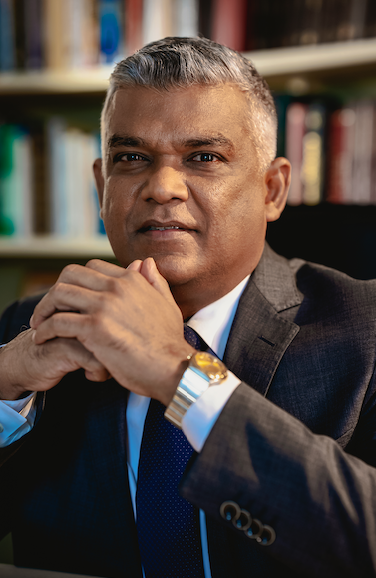Taking paracetamol when you are having a headache or bandaging your child’s scrap when the child got hurt while playing does not feel like a big deal. However, imagine you have to pay a premium price for a paracetamol pill or a cotton bandage roll and are financially unable to afford them. What would you do? I believe that we take many things for granted when those things are available freely or for an affordable price. And that would apply to manufacturing essential medicinal drugs in Sri Lanka as well.
The State Pharmaceuticals Manufacturing Corporation, or SPMC, was established to cater to the needs of a state-sector corporation that engaged in manufacturing pharmaceuticals in Sri Lanka. Established in June 1987, under the Act no 49 of 1957, through a grant aid from the Japanese Government through JICA, SPMC hasn’t wavered from its commitment to manufacturing high-quality and effective drugs at an economical and affordable cost.
The State Pharmaceutical Manufacturing Corporation (SPMC) stands tall with a distinguished history of visionary initiatives and a meticulously navigated trajectory. The origins of SPMC can be traced back to the Bibile-Wickramasinghe Report, prepared by the late Professor Senaka Bibile and Dr S A Wickramasinghe. This report was commissioned by then Prime Minister Sirimavo Bandaranayake, tasking the duo with the establishment of a government-owned and operated essential drug manufacturing entity in Sri Lanka.
In 1971, the report was presented to Prime Minister Sirimavo Bandaranayake, marking the commencement of the government’s initial phase: the importation of vital medicinal drugs. Subsequently, the second phase unfolded, focusing on the localised manufacturing of selected essential drugs.
The pivotal turning point came in 1985 when the Ministry of Health proposed the creation of a Formulation Centre for Essential Drugs. This proposal gained approval and support from the Japan International Corporation Agency (JICA), marking the realisation of the founders’ aspirations and the culmination of dedicated efforts.
The pharmaceutical industry in Sri Lanka, in general, plays a crucial role in ensuring the health and well-being of the citizens. With a growing population and increasing healthcare needs, the industry has had to witness significant developments in recent years. Among the key players shaping this landscape is the State Pharmaceutical Manufacturing Corporation. And I can be satisfied and humbly proud of where the SPMC is today as the former chairman.
The pharmaceutical sector in Sri Lanka has experienced remarkable growth in recent years, driven by factors such as rising healthcare awareness, government initiatives to improve healthcare infrastructure, and, of course, strategic planning and implementation within the state pharma sector. As a result of constant quality control and implementation of the highest international level standards as the benchmark in the industry, mainly by SPMC, Sri Lanka’s pharmaceutical market is known for its adherence to international quality standards, ensuring the safety and efficacy of medicines.
During my tenure in 2015 at SPMC, I was privileged to lead a team of dedicated professionals who shared a common vision of advancing healthcare in Sri Lanka. Together, we initiated several strategic measures to bolster SPMC’s position in the industry. Research and development became a focal point, driving us to explore new horizons in pharmaceutical sciences and technology. Our commitment to excellence demands that we continually enhance our manufacturing processes and ensure that our products meet the highest international standards. The most important decision I took was to increase the production and variety of essential medicinal drugs manufactured by the SPMC, which has proved to be a crucial decision for the Sri Lankan pharma sector as well as for the overall Sri Lankan healthcare sector.
Our main aim back then in 2015 was to provide an uninterrupted supply of pharmaceuticals required by the Medical Supplies Division (MSD) of the Ministry of Health, State Pharmaceutical Corporations (SPC), Pharmacies, and Medical Professionals. To facilitate this process, we expanded the building capacity of SPMC for production, storing area, and administration unit. The modernisation of the laboratory area also ensured the supply of high-quality drugs to those in need at affordable prices. This expansion is supposed to support us in improving production, increasing sales revenue, widening the product range, creating new employment opportunities, enhancing technical know-how, and creating a corporate image of SPMC, which is very well served to that goal. Numbers will support to prove that claim.
In conclusion, the pharmaceutical industry in Sri Lanka is a dynamic and evolving sector that plays a pivotal role in the well-being of our nation. International pharma is a colossal industry and one that is rapidly growing day by day. Accordingly, we need to keep up with that development and the competition and think of how to serve the well-being of our own people in Sri Lanka. And we are taking up that challenge successfully, I believe, with the seeds of ideas and visions our pioneers planted in this rich soil.
Having said that, I am humbly proud that SPMC, under my leadership, has been at the forefront of this journey, contributing to the accessibility and affordability of high-quality medicines. The challenges we faced have only fueled our determination to excel. As the torch passes to new leaders, I am confident that the pharmaceutical industry in Sri Lanka will continue to flourish, ensuring a brighter and healthier tomorrow for all.

Dr Sayauru Samarasundara
MD, Emeritus Professor (University of Moscow)
